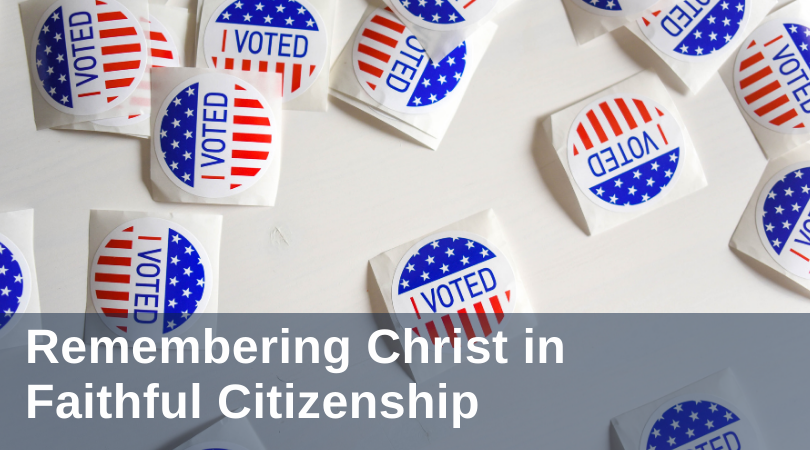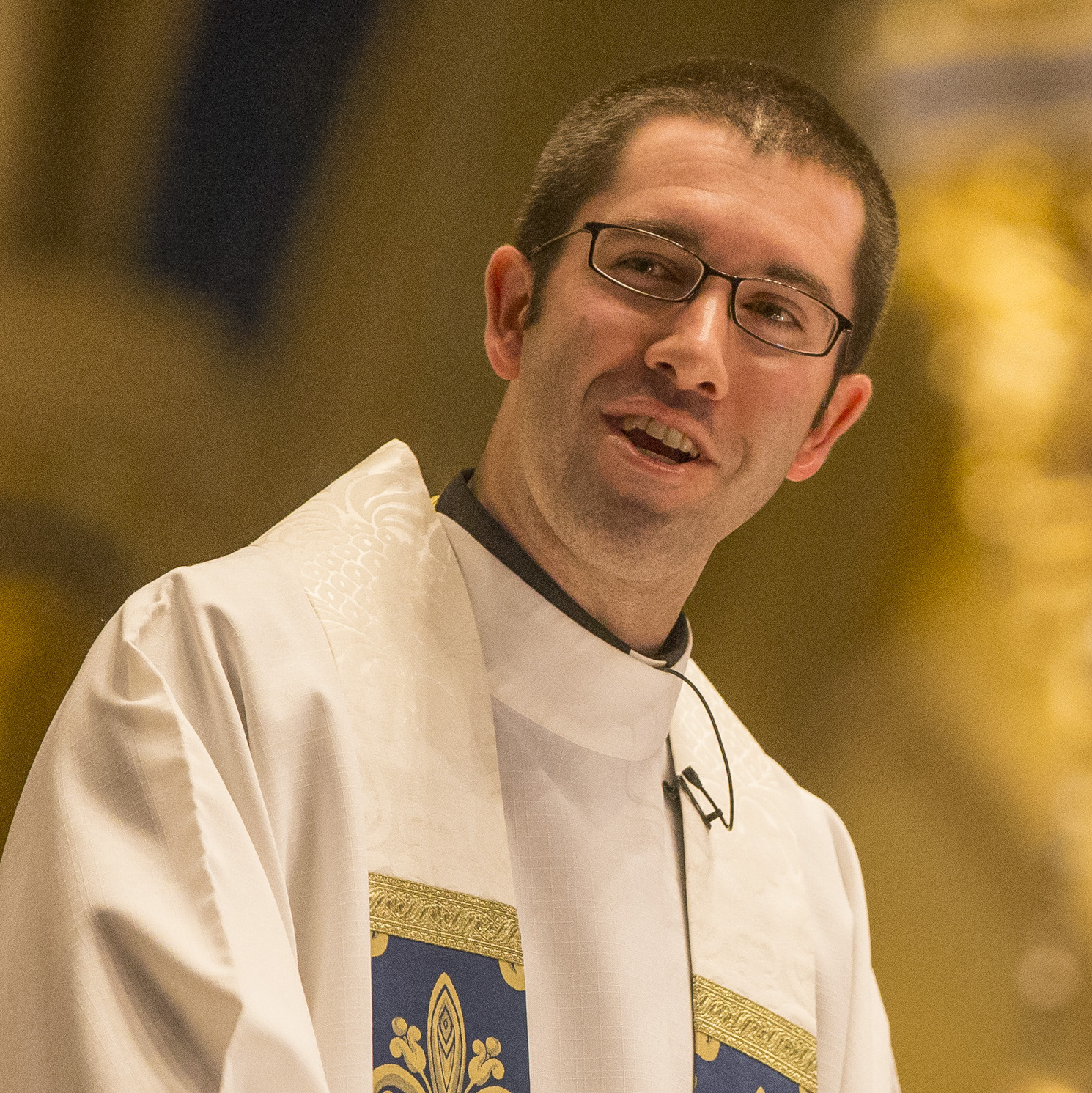
Somewhere between New Hampshire and November, American Catholics enter an increasingly complicated conversation with their fellow citizens. Navigating contests of “powerful interests, partisan attacks, sound bites, and media hype,” Catholics seek guidance from their Church in creating “a different kind of political engagement: one shaped by the moral convictions of well-formed consciences and focused on the dignity of every human being, the pursuit of the common good, and the protection of the weak and the vulnerable.”[1] But conscience formation begins long before faithful citizens find their updated voting guides and issue scorecards. It begins with an invitation, and an act of discipleship, and Eucharist. Faithful citizenship begins with Jesus Christ.
Because discipleship involves discipling. Not an abstract doctrinal guide or behavioral code, but a person. The person of Jesus Christ. And nowhere is Christ more tangibly present than in the Church’s liturgy. In the Eucharist, in the Scriptures, in the ministerial priest, and in the gathered assembly, Christ is present.[2] Vatican II’s Dogmatic Constitution on the Church, Lumen Gentium, professes that “the mystery of the Lord's Supper is celebrated [so] that by means of the flesh and blood of the Lord the whole brotherhood of the Body may be welded together.”[3] The sharing of Christ’s Gospel, Christ’s Eucharist, “has no other effect than to accomplish our transformation into that which we receive.”[4] Around the Eucharistic table, we learn to do all things in memory of Christ as we "go forth, glorifying the Lord by [our lives]." Not you or me, but we, the Body of Christ remembering its Head—the “we” that includes the widow, the orphan, the migrant, the beggar, the prisoner, the infant, the elder, the worker.
To come to see myself as Christ in this way, to allow the love of Christ to inhabit the whole of my reality—“all my liberty, my memory, my understanding, and my entire will”—such vision changes everything:[5] my relationships, my desires, my thoughts, words, actions, even the way I vote, because I have allowed Christ’s charity to “animate” the entirety of my life, including my political activity.[6] I “come to believe in God’s love,” expressing “the fundamental decision of [my] life,” trusting all the while that my being Christian “is not the result of an ethical choice or a lofty idea, but the encounter with an event, a person, which gives [my] life a new horizon and a decisive direction.”[7] I open myself to becoming Hopkins’ “just man [who] justices / Keeps grace: that keeps all his goings graces; / Acts in God’s eye what in God’s eye he is— / Christ.”[8]
Preachers should help in this process. Not by telling American Catholics how to vote, but by holding up a mirror to their lives, allowing them to see all that seduces them away from authentic discipleship. The homily should speak to those challenges, those temptations, those fears and doubts and insecurities that undergird people’s potentially-erroneous political decisions. Then the homily should show how Christ is acting in their lives to respond, inviting people to a place where, beneath the electoral cacophony of every-other-November, they might listen to Christ speak. If they can begin to do that, American Catholics will find that they can decode not only the political clamor, but their own heart’s desire, in making an informed political decision.
Ultimately, electoral discernment should bring people back to Christ, not just push them to the ballot box. Preaching can aid this contextualization. Not by applying moral principles to political actions, but by reframing the self and the goal involved in faithful citizenship. The self is not the individual, but the Body of Christ. The goal is not the good life, America the Beautiful, but life with God, the Heavenly Jerusalem. It’s why, when the ballots are counted and the results are in, a little political mystagogy from the Church would not hurt. The feast of Christ the King is a most fitting time for Catholics to reflect on the One to whose “party” they ultimately belong.
[1] USCCB, Forming Consciences for Faithful Citizenship: A Call to Political Responsibility (2015), §15.
[2] Sacrosanctum Concilium, §7.
[3] Lumen Gentium [LG], §51.
[5] From the traditional “Suscipe Prayer” of St. Ignatius of Loyola (“Take, Lord, and receive all my liberty, my memory, my understanding, and my entire will, all I have and call my own. You have given all to me. To you, Lord, I return it. Everything is yours; do with it what you will. Give me only your love and your grace, that is enough for me.”).
[6] Deus Caritas Est [DCE], §29.
[8] Gerard Manley Hopkins, “God’s Grandeur” in Gerard Manley Hopkins: Poems and Prose (W.H. Gardner, ed., Penguin Classics, 1985), 27, 27.


